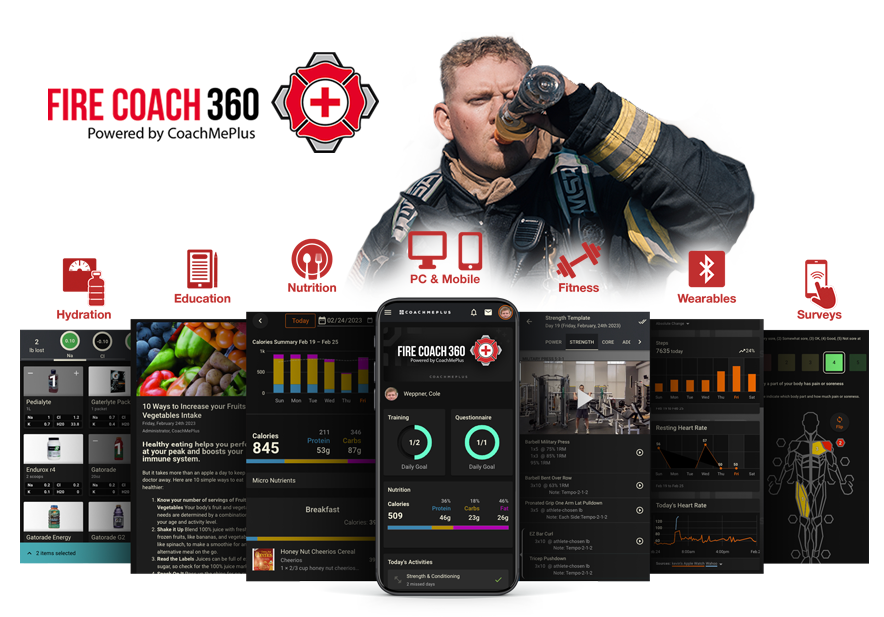Firefighters face immense emotional burdens, leading to burnout, increased absenteeism, and long-term disability claims. Overlooking these realities not only jeopardizes the well-being of our firefighters but also significantly impacts departmental budgets. Let’s expose the alarming mental health statistics within fire departments and underscore the urgent need for investment in resources that support mental resilience, ultimately saving departments money while protecting those who protect us.

High Rates of Post-Traumatic Stress Disorder (PTSD):
Firefighters regularly witness traumatic events and face life-or-death situations, exposing them to a unique set of stressors. As a consequence, the prevalence of post-traumatic stress disorder (PTSD) among firefighters is significantly higher compared to the general population. According to a study published in the Journal of Occupational Health, the estimated prevalence of PTSD among firefighters is approximately 20%, nearly five times higher than the overall U.S. population.
Elevated Rates of Depression and Anxiety:
The demanding nature of firefighting, combined with long hours, irregular shifts, and exposure to traumatic events, contributes to increased rates of depression and anxiety. A survey conducted by the International Association of Fire Fighters (IAFF) found that approximately 37% of firefighters reported experiencing symptoms of depression, while 45% reported symptoms of anxiety. These rates are considerably higher than those observed in other high-stress professions.
Suicide Rates Among Firefighters:
Tragically, the mental health struggles faced by firefighters can sometimes lead to suicide. The suicide rate among firefighters is a concerning issue that demands urgent attention. According to a study published in the Journal of Occupational and Environmental Medicine, firefighters are at an increased risk of suicide compared to the general population. The study indicated that firefighters are more likely to die by suicide than in the line of duty, underlining the critical need for mental health support within the firefighting community.
Barriers to Seeking Help:
Despite the alarming statistics, firefighters often encounter barriers when seeking mental health support. The stigma surrounding mental health issues remains a significant deterrent, with fears of perceived weakness or concerns about job security preventing many firefighters from seeking help. Additionally, the demanding nature of their work and the close-knit firefighting culture can create a sense of isolation, further inhibiting individuals from reaching out for support.
Addressing the Mental Health Crisis:
Recognizing the urgent need to address firefighter mental health, organizations and initiatives have emerged to provide assistance and resources. It’s imperative for fire departments to enact peer support programs, mental health awareness training, and access to confidential counseling services. Increased efforts are needed to foster a supportive culture that encourages open dialogue and destigmatizes mental health concerns within the firefighting community.

FireCoach360 is designed to provide a holistic approach to firefighter wellness, with a significant emphasis on mental health. Here’s how its features contribute to mental health support:
- Daily Wellness Questionnaires:
- These questionnaires allow firefighters to regularly assess and report their mental and emotional state.
- This consistent tracking can identify trends and potential issues early on, enabling proactive intervention.
- By including questions related to mood, stress levels, and emotional well-being, the platform creates a system for monitoring mental health alongside physical fitness.
- Sleep and Nutrition Tracking:
- Adequate sleep and proper nutrition are fundamental to mental health.
- CoachMePlus’s tracking capabilities help firefighters monitor these crucial aspects of their lives.
- By identifying sleep disturbances or nutritional deficiencies, the platform can assist in addressing factors that contribute to stress and mental fatigue.
- Confidential Communication:
- Providing a secure and confidential communication channel is essential for encouraging firefighters to seek help.
- The platform can facilitate private communication with wellness coaches or mental health professionals, ensuring that firefighters feel safe and supported.
- This is very important due to the culture that can be present within fire departments.
- Proactive Alerts for Concerning Data:
- The platform’s ability to analyze data and generate proactive alerts is crucial for early intervention.
- If the system detects concerning patterns in a firefighter’s wellness data, such as consistently low mood or increased stress levels, it can trigger alerts to relevant personnel.
- This allows for timely intervention and support, potentially preventing the development of more severe mental health issues.
CoachMePlus aims to create a comprehensive wellness ecosystem that integrates physical and mental health. By leveraging technology to track, monitor, and analyze key indicators, the platform empowers fire departments to prioritize the mental well-being of their members.

Recent Comments